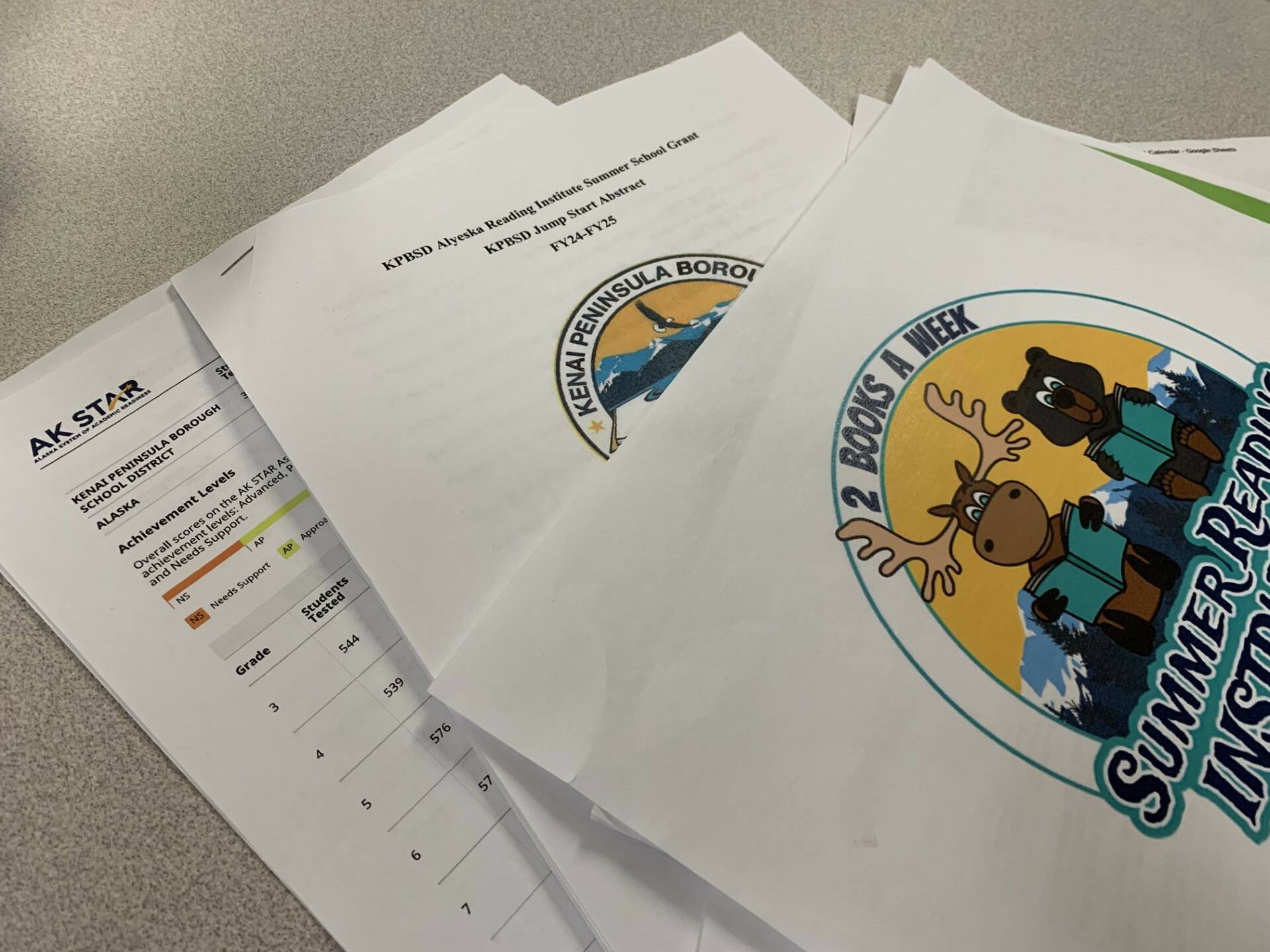As students across the borough prepare to head home for the summer, the Kenai Peninsula Borough School District is preparing a reading intervention program that many of its third grade students will need to complete before returning for fourth grade.
The program is the latest piece of the Alaska Reads Act the district has had to bring itself into compliance with this school year. That legislation, signed into law by Gov. Mike Dunleavy in 2022, created four new programs all designed to ensure all Alaska students can read at grade level by the time they finish third grade.
The legislation says third graders who test well below benchmark on their end-of-year literacy assessment may either be held back, or retained, one school year, or must receive additional intervention services before starting fourth grade.
As KPBSD worked last fall to roll out a new curriculum as part of the bill’s implementation, some staff weren’t clear how that additional summer instruction would be delivered or paid for. KPBSD Assistant Superintendent Kari Dendurent said last week the district as recently as March was still trying to find funding.
As of early April, 152 third-grade students — roughly one in four third graders — were testing well below benchmark on their literacy assessments and would need to undergo supplemental instruction over the summer or be held back a year. Dendurent said school staff have been meeting since early May with those students’ parents to present them with options.
Those options include having their student:
Held back one school year;
Attend 20 hours of in-person instruction during the first week of August;
Complete monitored online literacy exercises and activities; or
Complete two physical workbooks of literacy exercises and activities.
“If a student is scoring well below on this benchmark, they are going to be recommended for retention as well as summer instruction,” Dendurent said. “Then, based on that recommendation, the parents can make a decision.”
The online instruction option would be an extension of the literacy acceleration and remediation program that students already use during the school year — Amplify’s Boost. Amplify is the company behind KPBSD’s new Core Knowledge Language Arts, or CKLA, curriculum.
KPBSD envisions the in-person instruction being delivered for four hours per day, five days per week, for one week at the end of the summer. Instruction would be offered at 12 school sites, with one certified staff member working with a maximum of 10 students each. In-person instruction would be available only for students attending brick-and-mortar schools.
To pay for that instruction, the district applied in late April for $50,000 in grant funding from the Alaska Department of Education and Early Development. If awarded, the grant would pay for staff salaries and benefits, as well as student transportation and snacks, among other things.
For most KPBSD third graders, in-person instruction will be delivered for four hours per day from Aug. 5-9 at their community school. Instruction for students attending Voznesenka and Kachemak-Selo schools will take place from May 30 to June 4. Students at Razdolna School will be instructed from July 22-26.
Dendurent said Thursday that scheduling instruction at the end of summer for most students was intentional.
“We don’t want to have the regression happen over the summer,” she said.
Per the district’s grant application, it is KPBSD’s goal that students who attend the in-person program increase both their reading fluency score by five words per minute and increase their overall literacy assessment scores by 25%. That’s in addition to completing a minimum of four Amplify Boost programs per week.
The DEED grant, if awarded, would also pay for a certified staff member that would help families complete Amplify Boost programs. KPBSD’s grant application says that coordinator would help students and families access and use the programs, send weekly communications to families and supply accountability strategies, among other things.
“The teacher coordinator will monitor Boost usage, set goals with students and parents, review data, assist with reporting to school intervention teams at the start of school about student progress and learning, and assist during in person instruction reading program as needed,” the application says.
The application also points to the most recent round of statewide assessment results in explaining why money for an in-person instruction program is needed. Those results, published in April, show that most KPBSD third graders — about 71% — were below proficient on the English Language Arts assessment.
Dendurent said the literacy support provided for in the Alaska Read Act is exactly the type of intervention needed to address those scores in a meaningful way.
“The State of Alaska is doing the right thing to push that every single student should be reading at proficiency levels by the end of the third grade,” she said. “If we if we looked at these (scores) and chose to do nothing, then I think that would be a problem.”
The district expects to hear by May 26 whether its grant application has been approved.
Reach reporter Ashlyn O’Hara at ashlyn.ohara@peninsulaclarion.com.

